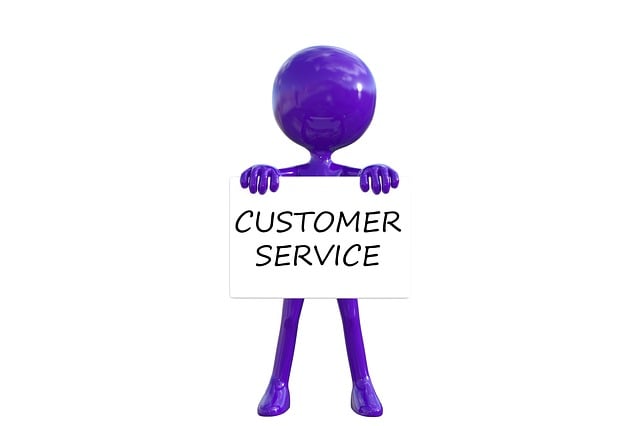Systemic Family Therapy is a holistic approach that views families as complex systems where each member influences one another within a broader social context. Unlike traditional models, it focuses on understanding and resolving intergenerational patterns, conflicts, and behaviors to enhance overall well-being. Family counseling services facilitated by trained therapists create safe spaces for open communication, collaboration, and relationship strengthening. Through techniques like system mapping, re-enactment, and reframing, these sessions help families identify and disrupt harmful cycles, improve interactions, and cultivate healthier dynamics. Measuring success involves tracking progress with structured assessments and providing continuing support to reinforce positive changes over time.
“Unleash the power of systemic family therapy—a holistic approach to healing and growth. This transformative process addresses the intricate dynamics within families, offering a haven for diverse groups to navigate complex issues. By identifying patterns and engaging every member, therapists facilitate open communication, fostering positive changes.
Our article explores the benefits, techniques, and impact of these sessions, shedding light on how family counseling services can address intergenerational challenges and provide lasting support.”
Understanding Systemic Family Therapy: A Holistic Approach

Systemic Family Therapy takes a holistic approach, recognizing that individuals are shaped by their relationships and environments within a larger social context. Unlike traditional therapy models focused on individual problems, this therapeutic framework views the family as a complex system where every member is interconnected. By understanding these dynamics, therapists can help families identify patterns, resolve conflicts, and foster healthier interactions.
This approach considers not just what happens during sessions, but also the unspoken rules, roles, and behaviors that exist within the family unit. It encourages open communication and collaboration among all members, aiming to strengthen relationships, improve overall well-being, and enhance the quality of life for each individual within the family system. As a result, family counseling services become a collaborative process where every voice is heard and valued.
The Benefits of Family Counseling Services for Diverse Families

Family counseling services play a pivotal role in fostering healthy relationships and resolving conflicts within diverse families. These sessions offer a safe and supportive environment where each member can express their feelings, concerns, and needs. By addressing underlying issues, family counselors help improve communication, enhance problem-solving skills, and rebuild trust among family members.
One of the significant advantages is the opportunity for every individual to gain insights into their behaviors and those of others. This process encourages empathy, understanding, and respect, enabling families to navigate challenges more effectively. Family counseling services are beneficial for families dealing with various issues, including step-families, blended families, single-parent households, and LGBTQ+ families, providing tailored support to meet their unique needs.
Identifying Patterns and Dynamics Within the Family Unit

In systemic family therapy sessions, one of the primary goals is to identify and understand the unique patterns and dynamics that exist within each family unit. This involves a comprehensive examination of relationships, communication styles, and behavior patterns among all family members. By observing these interactions, therapists gain insights into the underlying structures and rules that govern the family system. Such patterns might include power dynamics, role assignments, or emotional expressions that are recurring and impact overall family functioning.
Family counseling services delve into these dynamics to uncover hidden conflicts, unmet needs, and potential barriers to healthy relationships. Through this process, therapists help families recognize problematic cycles and gain a deeper understanding of one another. By identifying these patterns, family members can begin to challenge unhealthy norms, fostering more open communication and positive interactions, ultimately leading to improved overall well-being.
Engaging All Family Members in Therapeutic Processes

In effective systemic family therapy sessions, engaging all family members in the therapeutic process is paramount. It’s a collaborative effort where every individual contributes to understanding and resolving underlying issues within the family system. By including everyone, therapists foster an environment of openness and trust, allowing for a comprehensive exploration of relationships, dynamics, and communication patterns. This inclusive approach ensures that no single member’s perspective is overlooked, promoting a collective healing experience.
Family counseling services tailor their methods to accommodate each unique family structure, recognizing that diverse participation can enrich the therapeutic journey. Through group discussions, individual reflections, and joint problem-solving activities, families learn to navigate challenges collaboratively, strengthening their bonds and enhancing overall well-being. This holistic engagement not only facilitates personal growth but also cultivates a supportive network within the family unit.
Techniques Used in Systemic Family Therapy Sessions

Systemic Family Therapy sessions employ a range of powerful techniques designed to facilitate communication, resolve conflicts, and strengthen relationships within families. These sessions encourage all family members to participate actively, fostering an environment of collaboration and understanding. One key technique is system mapping, where therapists visually represent the family’s dynamics, identifying patterns and interconnections that may contribute to issues. This process helps the family gain new insights into their interactions.
Another effective approach is re-enactment, where family members act out scenarios from their lives. This allows them to experience and explore dynamic roles within the system, often revealing unspoken rules and expectations. Therapists also utilize reframing techniques to challenge negative perceptions and beliefs, promoting healthier ways of interacting. Through these methods, family counseling services aim to create a more harmonious and supportive family environment.
Addressing Intergenerational Issues Through Family Counseling

Addressing intergenerational issues is a key aspect of systemic family therapy sessions. By providing family counseling services, therapists create a safe space for families to explore and understand the complex dynamics that have been passed down through the years. This process involves uncovering and challenging recurring patterns, beliefs, and behaviors that may be negatively impacting current relationships and functioning.
Through interactive discussions and strategic interventions, family counseling enables each member to gain insights into their unique role within the family system. It promotes open communication, fosters empathy, and encourages collective problem-solving. By addressing intergenerational issues head-on, families can break free from harmful cycles, enhance their overall well-being, and cultivate healthier relationships for future generations.
Measuring Success and Continuing Support After Therapy

Measuring success and providing continuing support after therapy sessions are integral parts of systemic family counseling services. Success is not solely defined by the resolution of immediate issues but also by the long-term improvements in family dynamics and relationships. Therapists often utilize structured assessments to gauge progress, such as standardized measures or client-reported outcomes, which help identify areas of significant change and those that may require further attention.
After completion of therapy, families benefit from ongoing support through various means like regular check-ins, referral networks, and accessible resources. These ensure that families maintain their newly acquired skills and coping strategies, navigate any challenges that arise, and foster a sense of resilience. Continuing support also reinforces the progress made during therapy sessions, enabling families to sustain healthy patterns and continue their journey towards well-being.
